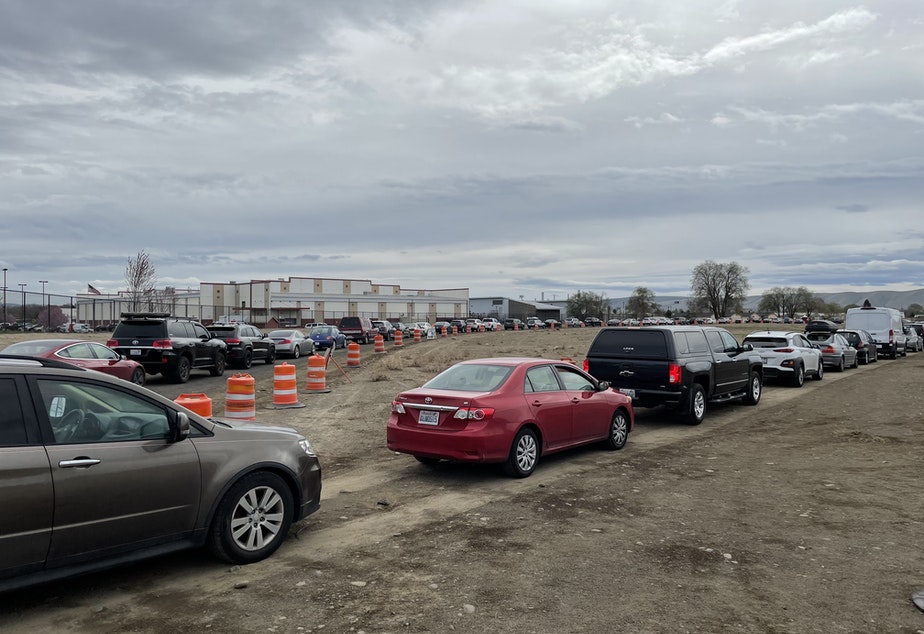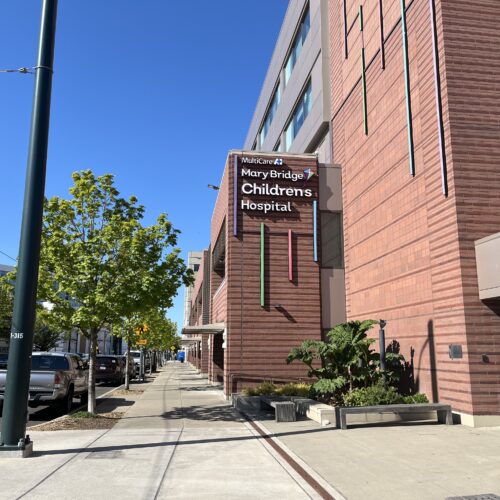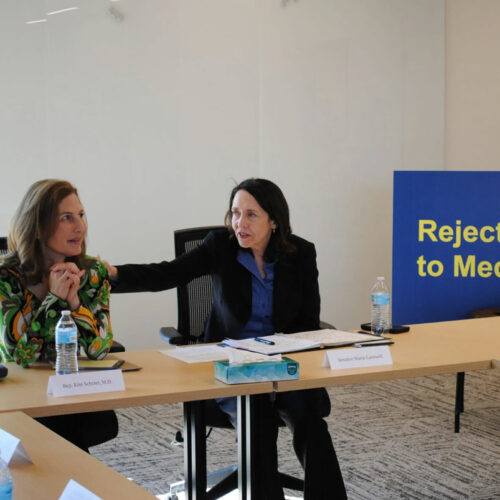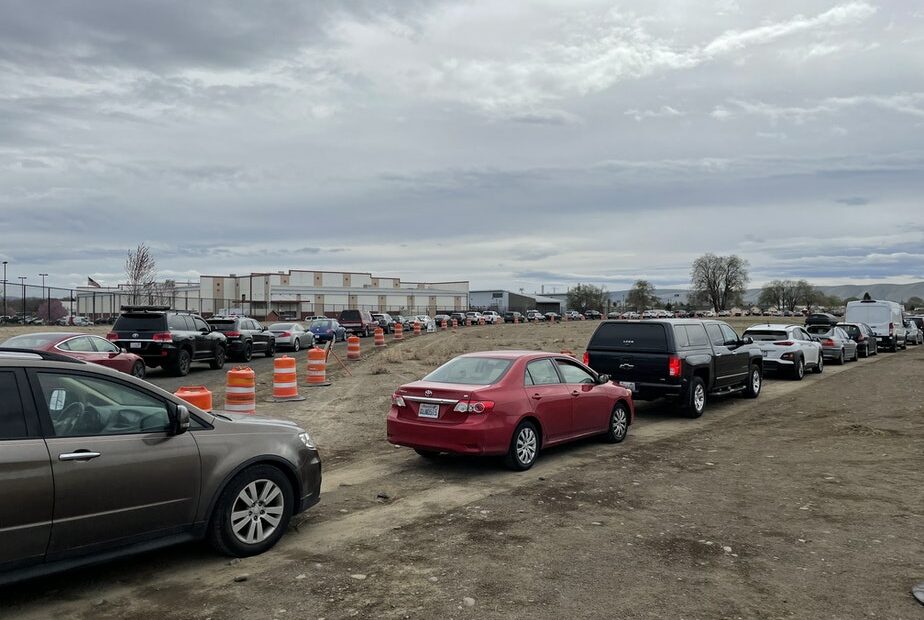
With Assistance From FEMA, A Mass Vaccination Site Opens In Yakima, And All Are Welcome
READ ON
BY ESMY JIMENEZ / KUOW
What started as a slow trickle of people became a flood of cars over Easter weekend at the FEMA vaccination center in Yakima, Washington.
And as April 15 approaches (when all adults are eligible for vaccination in Washington), some Seattleites are heading East for a coveted COVID-19 shot.
Take a bus to the Yakima Valley SunDome. Get a free Uber or Lyft to the site. If you can’t get there, mobile vaccination teams will come to you. Health officials just want you to get a shot.
“If you show up we’re going to give you a vaccine, that’s our goal,” said Jordan Gustafson with the Valley Regional Fire Authority as he gave me a tour Sunday.
Hundreds of cars are waiting on a dirt road over a mile long as National Guard staff guide them through. This park typically hosts the Central Washington State Fair at the end of the summer. Now it is dotted in white tents with medics shuffling vehicle to vehicle, syringes in hand.
The mass vaccination site opened last Wednesday. It’s one of a handful of FEMA pilot sites across the country. At first demand was slow; some locals worried doses would be wasted or the site would close down earlier than the eight weeks its expected to run.
Then over Easter weekend, word spread.
The goal of sites like this one is to support vulnerable communities as they vaccinate their population. Yakima especially was hard hit by the pandemic, at one point having the worst rate of positive COVID-19 cases on the entire West Coast.
The county has one of the highest poverty rates in the state and is largely agricultural, with a high number of Hispanic residents.
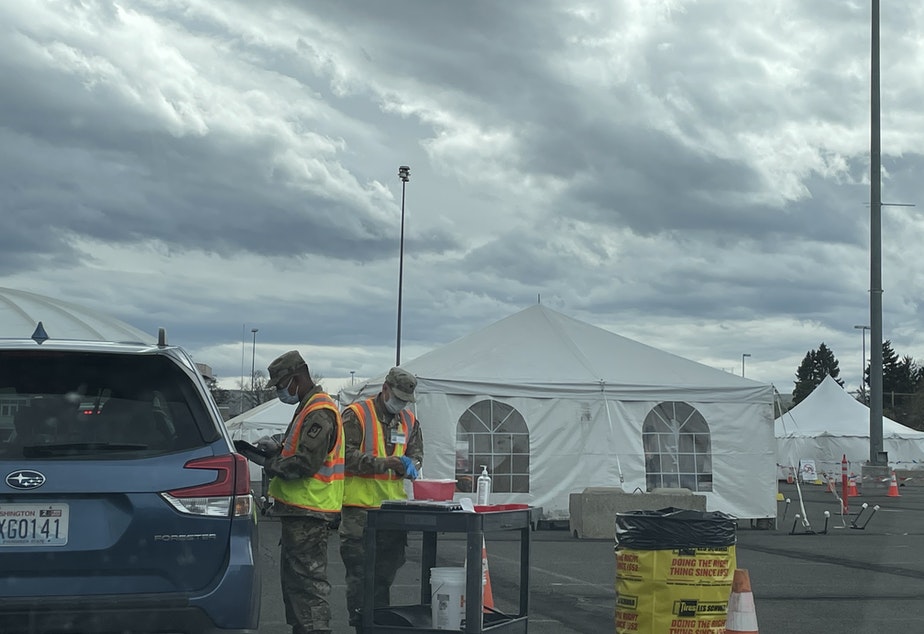
National Guard soldiers administer COVID-19 vaccines in Yakima on Easter Sunday, April 4, 2021. The FEMA-supported site is designed to vaccinate 1,200 people a day, with the potential to serve 3,000. CREDIT: Esmy Jimenez/KUOW
Taylon Diaz, a Yakima local, was driving by when he saw the signs for the vaccines. He came back the next day and now has his first dose of the Pfizer vaccine.
“Some others of my family are hesitant but I’m trying to get them to hop on it,” he said.
Rumors about the vaccine are impacting communities and their turnout. Some worry about what’s in the vaccine, others avoid it for religious reasons. That coupled with systemic barriers like generational poverty or language barriers means some of the people that have been most affected by COVID-19 have the lowest vaccination rates.
“I know people talk about microchips which seems kind of odd. I think the Latino community doesn’t believe in science and trust it as much, which I wish they would,” Diaz said.
That’s where community organizations have partnered with health authorities to dispel myths and build trust.
Gustafson says vaccines are available regardless of immigration status or health insurance.
And mobile medic teams are willing to travel locally, whether that’s “Out to the orchards, the farms, churches, community centers. Wherever we can get vaccinations out.”
As for those coming from outside the Yakima region to get a shot, health officials aren’t worried.
“We’ve seen a lot of people from Seattle come over which is great,” Gustafson said.
“We weren’t quite anticipating that, but the incident commander wants everyone to know our goal is to get shots in arms. However that looks.”
Depending on demand, he says the Yakima site might even double the number of vaccines to 3,000 a day. After which, federal officials will let the local health authorities run the site independently.
Related Stories:

Whitman County reports first flu-related death of the season
Hospitalman Yenifer Gutierrez, left, and Hospitalman Brashea Ojeda treat COVID patients in the ICU Aboard USNS Comfort in April of 2020. Influenza deaths surpassed COVID-19 deaths for this first time
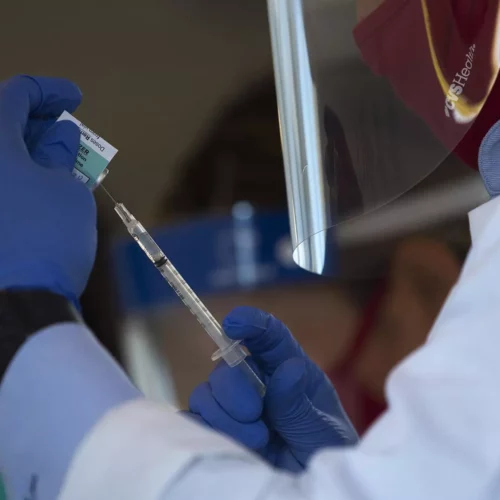
Washington ends COVID-19 vaccine requirements for state employees
Washington State employees will no longer be required to get a COVID-19 vaccination in order to keep their jobs.
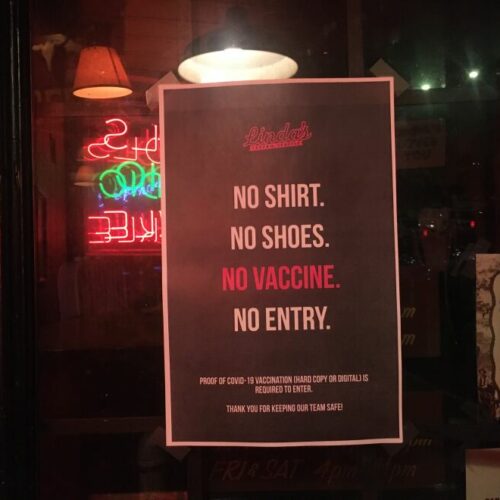
Showing Or Selling A Fake COVID-19 Vaccine Card Could Become A Crime In Washington
A proposal in the Washington Legislature would make it a crime to use or sell a fake COVID-19 vaccination card. The sponsor says he wants to deter people from even considering the ruse, but he also wants to send a signal to prosecutors to prioritize these cases as a matter of protecting public health.

